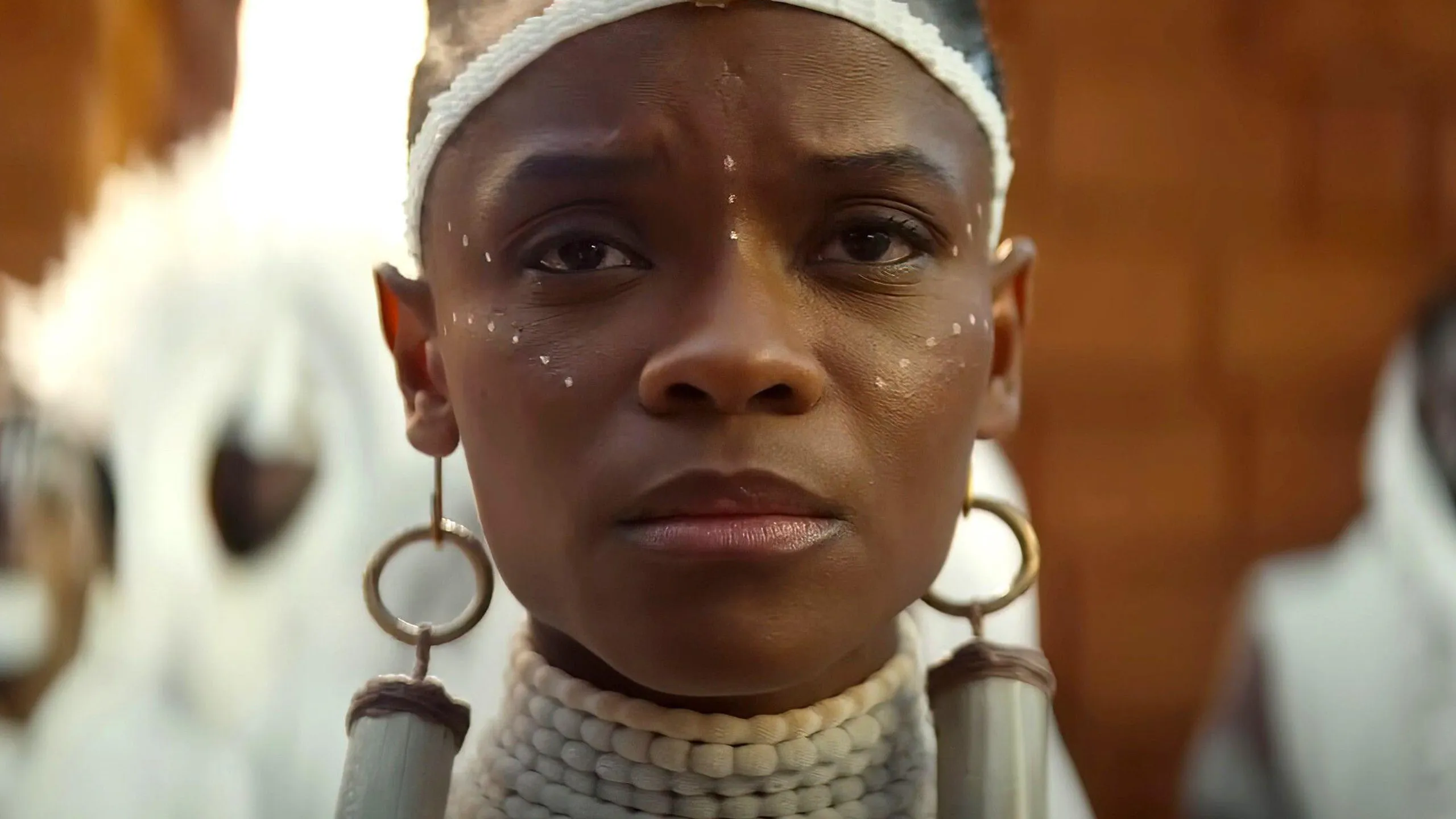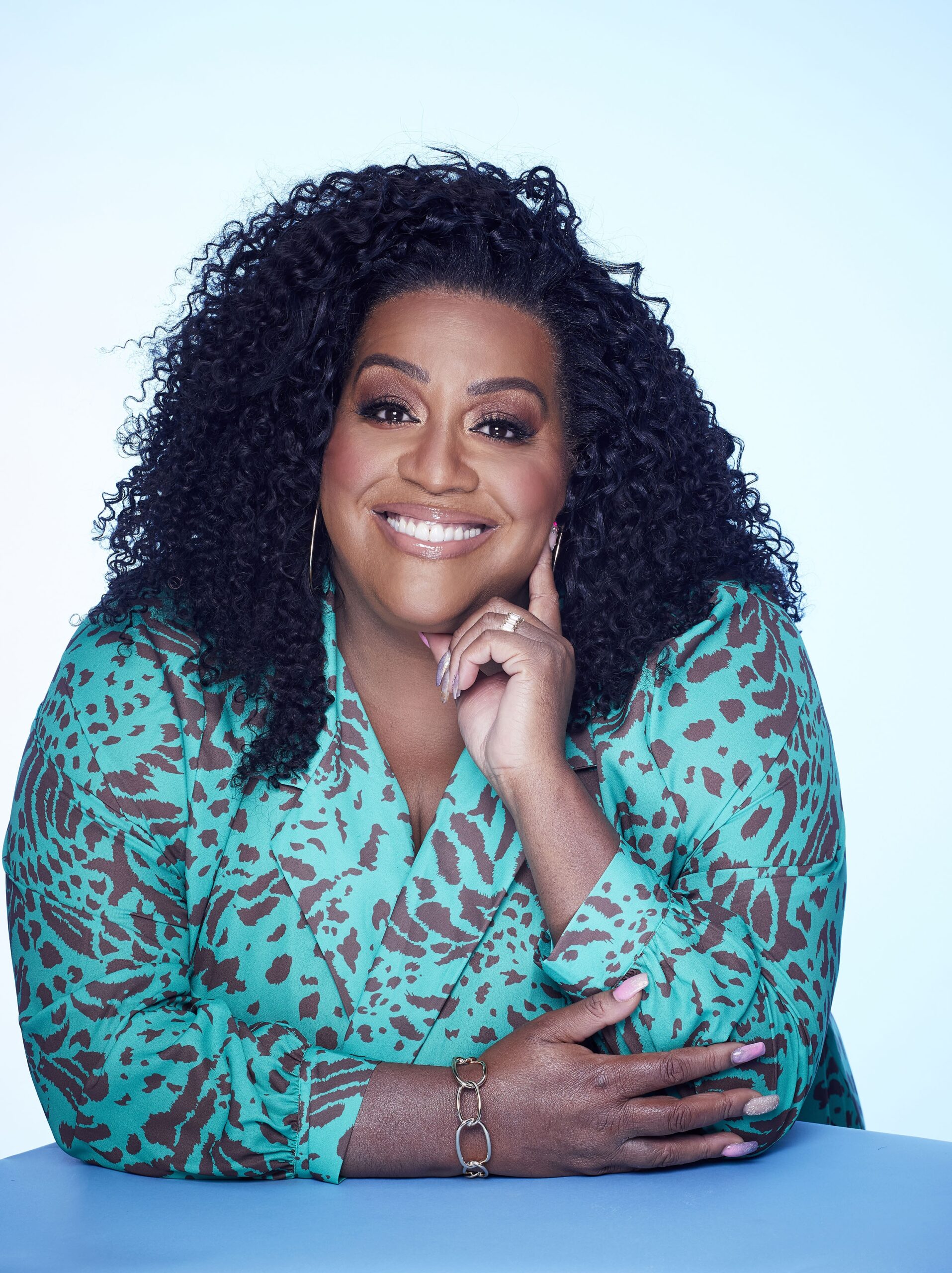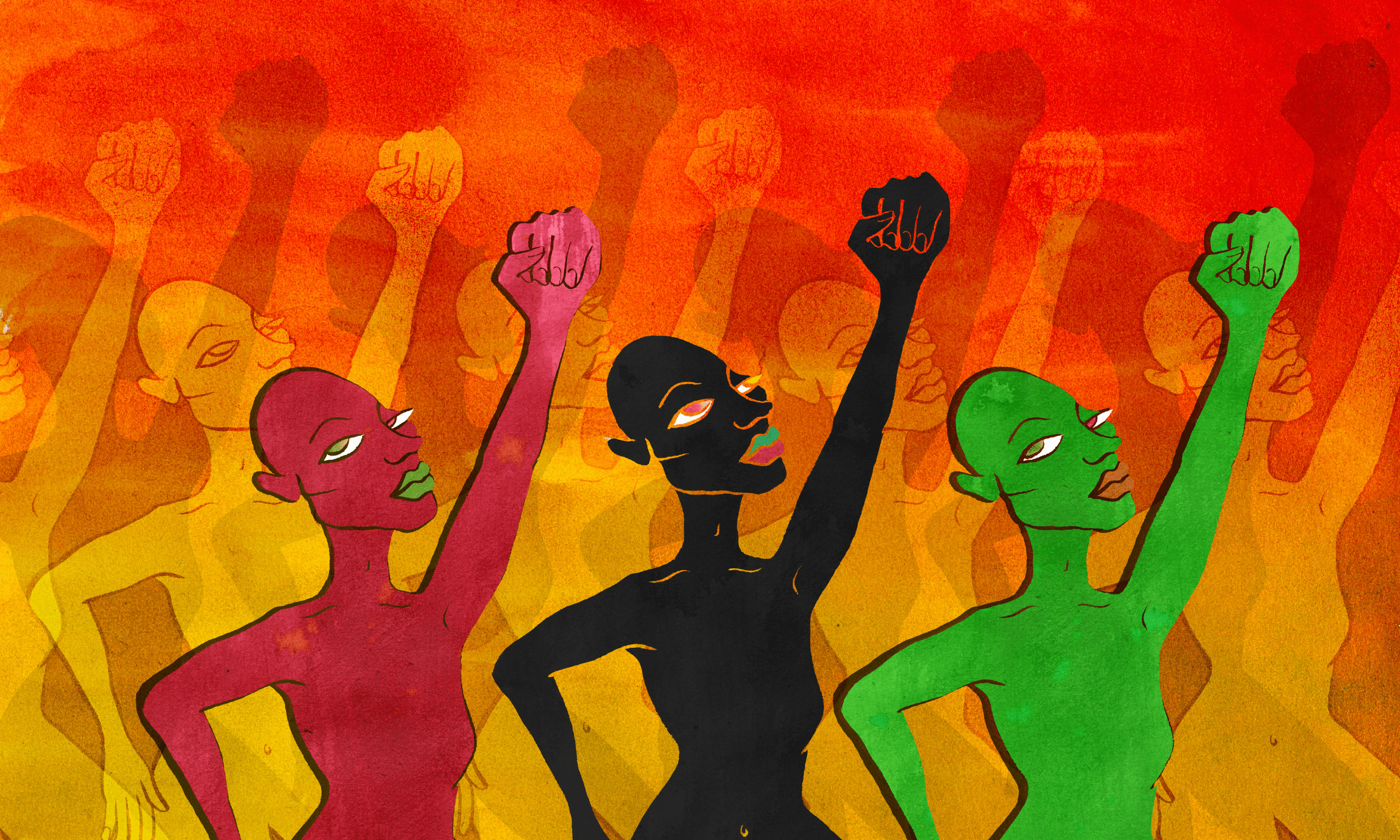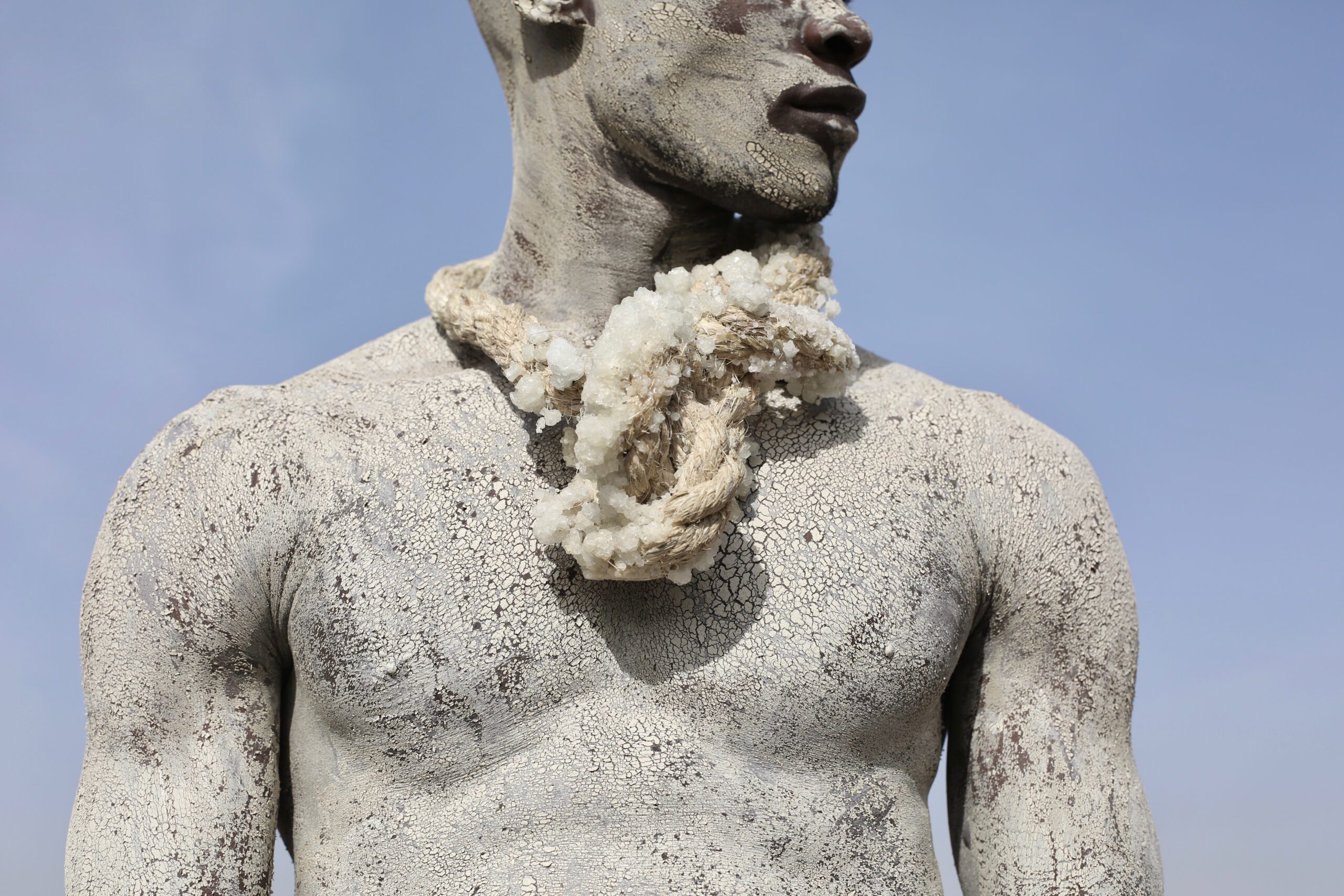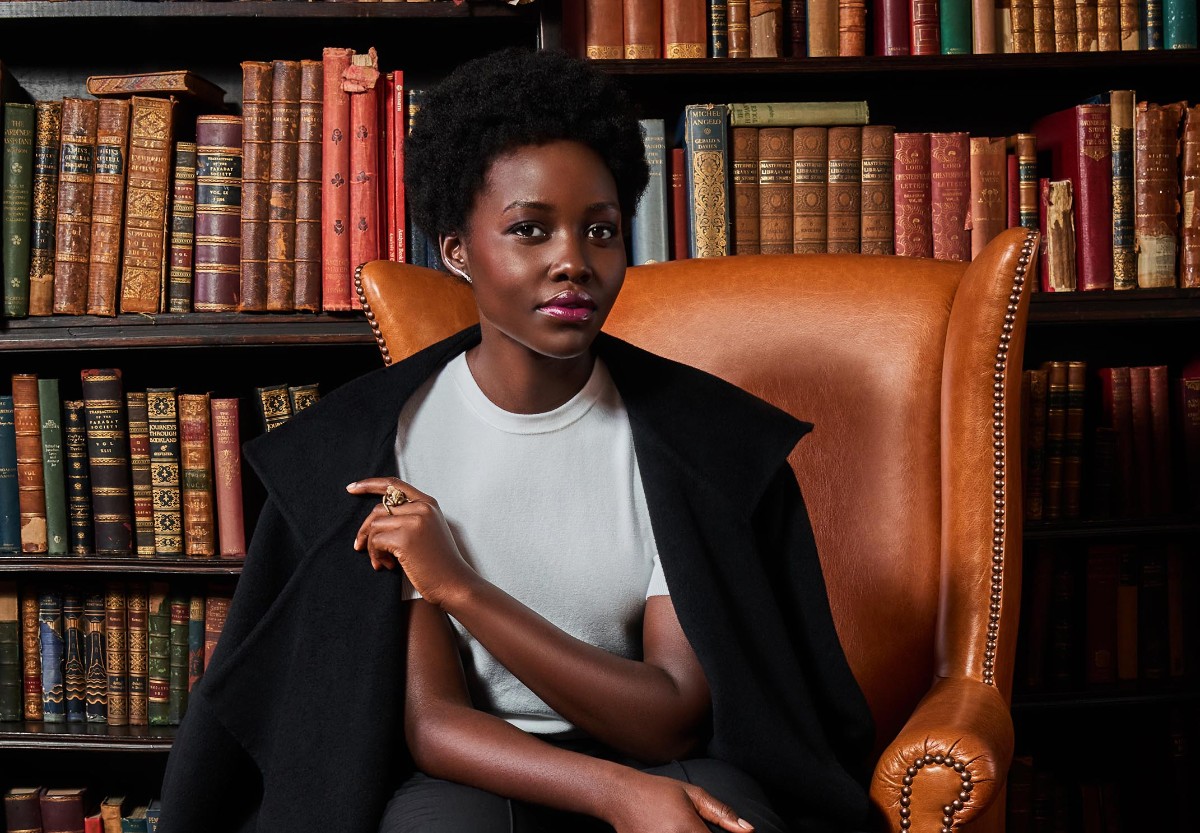
Lupita Nyong’o on warrior women, whitewashed history and her colourism book
Victoria Sanusi
22 Oct 2019
Photography courtesy of Channel 4
On the day I interview Lupita Nyong’o, I am the first to tell her that Beyoncé sings her name in her latest single ‘Brown Skin Girl’. “Did she? Oh my God. I didn’t know that.” The volume of her voice lifts in excitement. When I explain the song is about colourism she’s elated. “What? Oh, this is amazing. This is all very new to me right now. That’s incredible… I’m in shock.”
It’s fitting as we are here to talk about her children’s book Sulwe (which draws on her own experiences of colourism), and a soon-to-drop documentary for Channel 4 titled: Warrior Women: The Truth with Lupita Nyong’o. Lupita is sitting next to me on a lavish sofa in Chelsea draped in an elegantly cut floor-length black coat. She is upbeat, astute and attentive and already looking radiant despite the British rain spewing outside – she’s clearly a morning person.
That’s probably how she’s managed to get so much done in the last decade. The Kenyan-Mexican actress was catapulted into the limelight in 2013 after starring in Steve McQueen’s 12 Years a Slave, for which she gained several prominent awards, including an Academy Award for best supporting actress. Just a few years later she found herself in the Star Wars trilogy as Maz Kanata. In 2018, Lupita entered the Marvel Cinematic Universe, delivering a stellar performance in Black Panther as Nakia, a kick-ass fighter. It is one of the highest-grossed movies in the world, shattering the ridiculous stereotype that “black films don’t sell”, as well as providing positive representations with Lupita as a dark skin love interest to T’Challa. Something you rarely see in Hollywood narratives. She’s proven she can play just about any role, recently turning from beguiling to terrifying as the tethered and bestial Red in Jordan Peele‘s horror film Us.
“How am I disrupting industries I am in? Well, I am showing up and I am not apologising for it”
Lupita Nyong’o
Lupita is unquestionably one of the worlds most important voices in the media; from coming forward to speak on claims that she was sexually harassed by American filmmaker Harvey Weinstein to calling out Grazia UK for adhering to eurocentric beauty standards when editing out her kinky hair from their cover issue.
“How am I disrupting industries I am in? Well, I am showing up and I am not apologising for it,” she says. For Lupita, simply being herself has made a striking difference to so many black women’s lives, including my own. Her entertainment career is almost vocational – she tells me it’s important she helps us see ourselves and our experiences through an empathetic lens.
Now armed with the new knowledge that Beyoncé is also putting out art on the topic, she says this speaks to a cultural shift. “Something is changing,” she adds. She revealed after her speech on colourism in 2014 went viral, that she was approached to write a children’s book on the matter. “I just didn’t know how to do it and I kind of emptied my cup in that speech, so I didn’t feel prepared to tackle the subject in any other way at that point”. Early last year it was announced that the actress would be making her writing debut with a book on colourism for children. Sulwe sees a five-year-old Kenyan girl, who has the darkest complexion in her family, navigate how the world sees her skin tone.
To illustrate Sulwe, which was released earlier this month, she teamed up with the creator of the best-selling children’s book series Little Leaders, Vashti Harrison. Lupita says having a black woman behind the drawings was necessary – even if she says it was a “very difficult” search. “I really wanted the writing of the book to be a part of a communion and a healing process of itself. I was so keen on a black female illustrator because we would share an ethos of some kind.”
It was after starring in Marvel’s Black Panther that she felt ready to pen the book. She laughs as she recalls how she carved out a weekend to write the entirety of Sulwe, with strict instructions for no one to disturb her. What she actually ended up with was an eight-page essay that would be impossible for a child to absorb. “I had to humble myself and realise that children’s book writers are extremely skilled and I ended up spending a year just reading children’s books and researching them. They distil a lot of ideas, in very simple sentences.”
While not much is known about the story, she hints that the book may explore colourism through metaphors or allegories to make it more accessible. “The subject of colourism is so heavy, I didn’t want to add to that because childhood is a time of great imagination. I wanted my book to tackle the subject without bringing down the energy and introduce a burden to a child before it is theirs to carry.” But she says it’s very important to target children before the world has told them “what their value is”, she hopes the book gives black children especially, a reservoir of self-worth.
Just as her book will have layered meanings, there are deeper levels to her popularised Black Panther character Nakia. Many are unaware of the unreported history behind the “Agoji” women who the basis for Wakanda’s Dora Milaje (an all black-female army who are special forces). In a magnificently shot documentary Warrior Women that will air on Wednesday (23 October), Lupita journeys through the history of her character, travelling across Benin, West Africa to divulge the truth about these women and how they were rewritten in history by Europeans as “Amazons”. The Agoji are African women soldiers who will do almost anything to protect their king. Between the 17th and 19th centuries, their were said to be over 4,000 of them.
“I feel my education was so eurocentric and I am just catching up”
Lupita Nyong’o
There are many obvious similarities between the Agoji women and the fictional Dora Milaje. From the robust panther statue to the crossing of their arms with armour, to their dedication to defend their king. In the documentary, she’s visibly shocked throughout at the sheer wealth of information available. From speaking to the remaining family members of the Agoji women to visiting treasured shrines of their existence, she says there were many days where she’d just felt quite overwhelmed.
“I was not expecting such a direct correlation, I didn’t think anyone of us working on the film was that aware. Sometimes it’s almost unconscious that we kind of call upon things from history,” she says. “I felt so fortunate to have that opportunity, to be welcomed and invited into almost the back rooms of the culture. I could have been invited to Benin on my own and never have been exposed to this amount of information, history and contextualisation of Benin. I felt really privileged to preserve history. Hopefully, the documentary breeds more curiosity that leads to more findings”.
Lupita hopes viewers will reckon with how complex the Agoji history truly is and wants people to be able to appreciate both their valour and vulnerability. In the film, she meets with a woman whose family history has suffered at the hands of the Agoji women. “The Agoji women were involved in the slave trade and that has changed the dynamics and polarisation of Benin to this day. On one hand, they are a symbol of the power of the feminine but they are also the pain… they caused the pain,” she says.
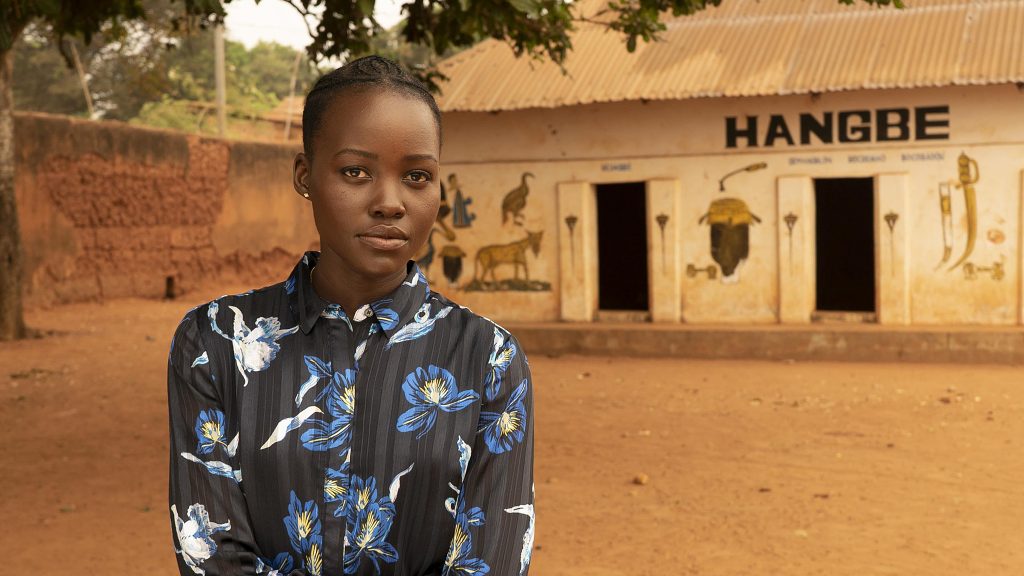
Taking part in the documentary is helping her unlearn own admittedly whitewashed view of history. “I feel my education was so eurocentric and I am just catching up. So any opportunity to catch up with myself, in such an in-depth way, I am signing up, so for me, that was the opportunity”.
The Agoji were fetishised by Europeans and labelled as “sexually exotic savages”. But this doesn’t come as a shock to Lupita. “I have been reading my history books for a while. This is common, look at Cleopatra and Helen of Troy, when they are powerful women are often re-written as something more extreme than what they probably were”. We know that history is often in the hands of who is holding the pen. “When you see them in the very few photographic evidence that we have, you’ll see the look on their faces is so different from the European version. The versions that went to the human zoos created and toured in Europe.”
As for the star who has many projects on the go, she still has some exciting roles on the horizon. She’s set to act alongside Viola Davis, as a mother-daughter duo in The Woman King which is inspired by true events that took place in The Kingdom of Dahomey, one of the most powerful states of Africa in the 18th and 19th centuries.
Lupita is laser-focused on altering the media’s perception of the diaspora – black women in particular. With each role or project, she lends her talents to vital storytelling that showcases us in all of our multifaceted glory. She adds: “I feel like it’s time for us to share our stories. For so long I have been – and I am sure you have been – consuming other peoples stories.”

